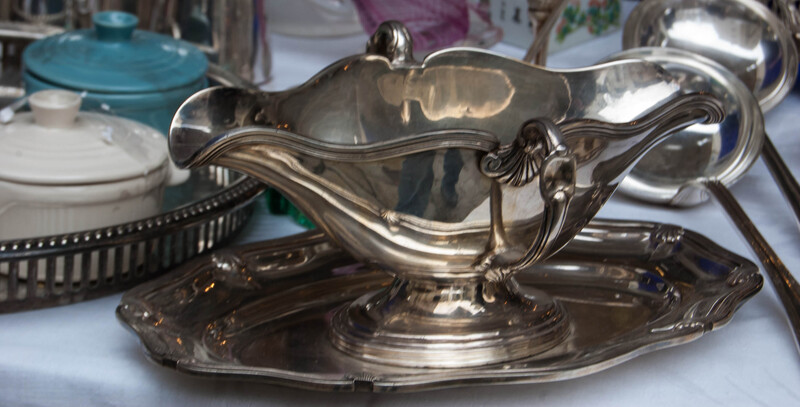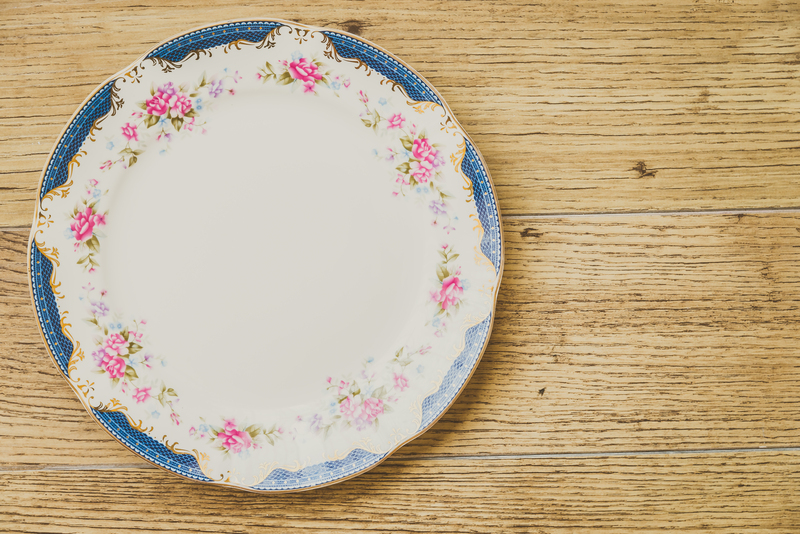Smart Strategies for Decluttering Without Waste
Decluttering your home or workspace is a liberating experience that can boost your mood, sharpen your focus, and make daily living more enjoyable. However, while the urge to tidy up and get rid of unwanted items is natural, many disposal methods can result in unnecessary waste. In today's world, embracing sustainable decluttering is essential for both our well-being and the environment. This comprehensive article will guide you through smart strategies for decluttering without waste--ensuring your space is organized, your mind is clear, and your carbon footprint is minimized.

Why Decluttering Without Waste Is Important
Avoiding waste during decluttering isn't just about being environmentally responsible--it's about conscious consumption and making thoughtful decisions that benefit you and the planet. Traditional decluttering can result in bags of trash and piles at the landfill, amplifying pollution and resource depletion. Embracing waste-free decluttering ensures:
- Resources are reused or recycled, not wasted
- Usable items find new homes
- Donation opportunities support those in need
- Less pollution and landfill crowding
Waste-conscious decluttering is part of a bigger movement toward sustainable living--making incremental changes that have a positive impact over time. Let's explore detailed, actionable strategies for clutter-free living without waste.
Step 1: Plan Your Decluttering Project
Set Realistic Goals
Start with a clear plan and purpose. Determine why you want to declutter--are you downsizing, moving, making space for a new hobby, or simply aiming for a cleaner space? Break your project into manageable steps, tackling one room, closet, or drawer at a time. Decide a timeframe and stay committed, but don't rush. Organized, thoughtful progress is the key to waste-free decluttering.
Gather Supplies (Mindfully)
- Reused boxes or bags for sorting items--avoid buying new ones if possible
- Labels made from scrap paper for identifying donation or recycling categories
- Notebook or phone for making lists or taking photos of items to rehome
This approach minimizes waste generated just from organizing!
Step 2: Sort Items for Redirecting, Not Disposing
Use the Four-Box Method (with a Twist)
To avoid waste, sort items into four main categories--but with sustainability in mind:
- Keep: Items you use regularly, love, and need.
- Donate/Give Away: Usable items in good condition for others.
- Sell: Valuables or specialty items worth reselling.
- Recycle/Compost: Only for items that can't be reused but are recyclable or compostable.
Note: Only use the trash as a last resort.
Ask the Right Questions
- Have I used this in the past year?
- Does this have sentimental or practical value?
- Can someone else benefit from this?
- Is this broken beyond repair, or could it be recycled/upcycled?
Step 3: Rehome and Repurpose Thoughtfully
Donate Responsibly
Donation is a powerful tool in your decluttering without waste arsenal. But, not all items are accepted by all organizations, and dumping unusable items can hurt charities. Here's how to do it right:
- Research local charities or shelters--make sure your items are needed and accepted.
- Call ahead for donation guidelines.
- Sort and clean items before donating.
- Utilize specialty donation programs for electronics, books, eyeglasses, or furniture.
Sell Items to Give Them a Second Life
For items of value, selling not only recoups cost but also places them in hands of people who want them--leading to clutter reduction without waste. Some popular avenues:
- Online marketplaces (eBay, Facebook Marketplace, Craigslist)
- Consignment shops for clothes, accessories, or vintage goods
- Garage sales or neighborhood swap events
For best results, photograph clearly, describe honestly, and set fair prices.
Freecycle and Community Giveaways
If you don't want to sell, gifting through community groups guarantees reuse. Try:
- Freecycle.org or local Facebook "Buy Nothing" groups
- Nextdoor app posts
- Community center or local bulletin boards
Repurpose, Upcycle, or Repair
Some items can find new life with a little creativity:
- Old t-shirts -> cleaning rags or craft material
- Mason jars -> organizers or planters
- Broken furniture -> reclaimed wood art or shelves
- Damaged books -> paper crafts or decorative items
Get creative and use Pinterest or YouTube for endless upcycling ideas!
Step 4: Recycle & Compost Properly
Know What Can Be Recycled
Check your local recycling guidelines to ensure you don't contaminate the recycling stream. Key items commonly accepted include:
- Paper (not soiled; staples OK)
- Cardboard (flattened)
- Clear glass and plastic bottles (rinsed)
- Metals like aluminum cans and tin
- Electronics (at special drop-off events)
Avoid: Plastic bags, greasy pizza boxes, broken ceramics, and non-approved plastics.
Recycling Special Items
- Electronics: Use certified e-waste recycling centers
- Clothing: Textile recycling bins or fabric drop-off points
- Batteries & bulbs: Hardware stores or city hazardous waste centers
- Medications: Pharmacy take-back programs
Composting for Organic Matter
If you're clearing out expired pantry goods, old papers, or natural fibers:
- Start a compost bin for food scraps, coffee grounds, and plant trimmings
- Shred and compost non-glossy papers
- Compost 100% cotton, wool, or linen textiles (cut small)
Composting significantly reduces landfill waste and creates nutrient-rich soil for gardening!
Step 5: Avoid Future Clutter and Waste
Adopt a Sustainable Mindset
Decluttering is most effective when paired with thoughtful consumption. Here are key habits to maintain a clutter-free environment without generating waste:
- Buy less: Practice mindful shopping and avoid impulse purchases
- Buy used: When you need something, consider secondhand first
- Opt for quality: Invest in durable, repairable goods over disposable options
- Repurpose before replacing: Fix or upcycle instead of replacing
- Implement "one in, one out" rule: For every new item, donate, sell, or recycle one
Implement Organization Systems
Staying organized reduces the need for future purges. Try:
- Labeling drawers, bins, and shelves for easier access
- Designating drop zones for mail, keys, and shoes
- Monthly reviews to re-balance what you own
Advanced Tips for Smart, Waste-Free Decluttering
Digital Decluttering
Clutter isn't just physical. Declutter your digital life:
- Organize files and delete duplicates
- Unsubscribe from unwanted emails
- Donate, resell, or recycle old devices responsibly
- Use cloud storage to reduce reliance on physical drives
Zero Waste Decluttering for Minimalists
- Conduct a "stuff audit": List all you own and keep only the essential
- Document sentimental items: Take photos before letting go
- Host a clothing or book swap: Engage your community in the decluttering process
Engage Kids in Clutter-Free Living
Teaching eco-friendly decluttering habits early creates lifelong habits:
- Encourage kids to sort toys and clothes for donation
- Include them in drop-off trips so they see the impact
- Make upcycling or crafts part of family time
Common Mistakes and How to Avoid Them
- Dumping everything without sorting--Plan, sort, and redirect items responsibly
- Unclean donations--Wash, repair, and pack items before giving
- Overloading recycling bins--Know local rules, prep items properly
- "Aspirational" donations--Don't donate broken or unsanitary items
- Decluttering too quickly--Take your time to make wise, waste-free choices

Resources to Support Waste-Free Decluttering
- Earth911 for local recycling guidance
- Freecycle to give away usable things
- Goodwill and charity directories for donation
- Repair Cafe for local repair events
- The Buy Nothing Project for neighbor-to-neighbor gifting
Conclusion: Clutter Freedom Without the Guilt
Living in a clean, organized space doesn't have to mean filling up the trash. By employing smart strategies for decluttering without waste, you can transform your environment, benefit others, and minimize your ecological impact. The process may take more effort and reflection, but the reward is a home--and a world--with less clutter and less waste.
So, set your intention, organize your items, and guide your unwanted belongings toward new homes, new purposes, or responsible recycling. Your journey to a clutter-free, waste-responsible life starts today!